If you’re looking for information about the IELTS listening exam, then you’re in the right place. This is the ultimate resource for IELTS listening tips, practice tests, question types, common topics and a whole lot more. Read on for everything you need to ace listening for IELTS.

IELTS listening practice and preparation
IELTS Listening: Information about the Test
For IELTS, there is a general and an academic exam. However, the listening and speaking portions of both exams are the same. The difference is for reading and writing only.
In most test centers, the listening portion is done first, followed by reading and then writing. You will have to book a separate time for the speaking exam.
The listening test consists of 40 questions and takes around 30 minutes. There are four sections to the test and you will only be able to hear each recording once. Find out everything you need to know about IELTS listening band scores here.
- Amazon Kindle Edition
- Bolen, Jackie (Author)
- English (Publication Language)
- 287 Pages - 04/06/2023 (Publication Date)
Paper vs Computer-Based
Depending on the center you do your test at, there are two options: Paper or Computer. They differ slightly in timing and how you record your answers.
For the paper-based exam, you have to listen and write down your answers on the questions paper at the same time. In the end, you will have an extra 10 minutes to write down your answers on the official sheet.
For the computer-based IELTS listening, you will put your answers directly into the computer. You will only be given two minutes, at the end, to review your answers and make any changes necessary (most people don’t change anything).
4 Parts to the IELTS Listening Exam
There are four distinct sections for this test.
Section 1: A conversation between two people about a general topic.
This is often a phone conversation between two people who are booking a table at a restaurant or asking whether or not an apartment is still available to rent. You’ll usually have to listen for specific information such as names, times, places, numbers and dates.
Section 2: A monologue (1 person) who is talking about a general topic.
This can often be a talk from a guide of some kind. You’ll hear information about a place, company, charity, etc.
Section 3: A conversation about an academic topic.
It can be with up to four people. It may be 2 or 3 students talking to their professor about something.
Section 4: A monologue about an academic topic.
This is an academic lecture.
Accents
There is a range of accents on this exam but the most common ones are British and Australian. Get familiar with these accents during your IELTS listening preparation and practice.
IELTS Listening Time
The IELTS listening exam time can vary a little bit. However, it’s generally around 30 minutes.
Instructions for Test Takers
Here is what you will hear during the test.
- You’ll be told to open your exam book. Take a deep breath and focus!
- Each of the four sections will be introduced with something like, “You’re going to hear two people, Keith and Jen talk about ____.”
- You will be told to look at the questions before the listening begins. It is a short amount of time so use it well. Underline key words.
- The conversation or monologue will begin. You will only hear the conversation once.
- Write down your answers (slightly differently, depending on whether it’s paper or computer-based).
- You will be given some time at the middle, or end of each conversation to look over your answers. Only change something if you’re sure. Otherwise, use that time to look at the next set of questions.
- Amazon Kindle Edition
- Bolen, Jackie (Author)
- English (Publication Language)
- 108 Pages - 08/26/2021 (Publication Date)
Tips for IELTS Listening
There are a number of things you can do to improve your score. Here are a few tips and tricks for IELTS listening.
Breathe
Don’t forget to breathe. This is probably the most important listening tip in IELTS. Focus. Try to relax if possible. Get enough sleep the night before and be sure to eat breakfast if you have your exam in the morning.
30 minutes is quite a long listening test. It can be easy to lose focus, so be sure that you’re at your best! Practice doing full tests at home first so that you’re used to focusing this entire time.
Pay Attention to Context Clues
At the beginning of each section, the person will say who is talking and what they are talking about. This is very important. Pay attention to it!
For example, if people are talking about a new shopping mall, you might recall vocabulary such as: stores, shops, food court, money, credit card, shopaholic, etc. This will help you during the listening portion as you’ll already have these things in your mind.
ALWAYS Look at the Questions First
You will be given a short amount of time to read the question before doing the listening. Use this time well. It’s much easier to do well on a listening exam if you know specifically what you’re listening for. There will always be lots of extra information but only focus on the specific information you need to answer the questions.
This is a good general practice for any listening test! If you are able to read the questions first, it’s a big advantage.
The Questions are in the Correct Order
Listening tips in IELTS? You’ll want to pay attention to this one! On the exam, the questions are in the order that you’ll hear them on the listening. If you miss one of them, skip it and go on to the next one. You’ll have a bit of time, in the end, to try to answer it.
You may get the answers to 2-3 questions in a very short amount of time. There may be a long gap between answers (more common in section 4). Don’t worry. This is normal. Just keep breathing and stay calm!

Listening practice for IELTS
Pay Attention to the Word Count Limit
For each set of questions, there is a word count limit. It can change for the next set of questions. Pay close attention to this.
For example, you may have to write no more than two words and/or a number. In this case, you can write:
- 1 word
- 2 words
- 1 word + number
- 2 words + number
- 1 number
Also, pay attention to whether it says “number” (only 1) or numbers (more than 1 possible). Find out how words are counted here.
Spelling Matters
Pay attention to spelling. If the spelling is not correct, your answer will be marked wrong. However, British or American English spelling are both fine.
Don’t worry about spelling during the actual listening portion. You will have some time at the end to check your answers and/or transfer them. This is the time to check for the correct spelling.
This is similar to the writing portion of the exam where spelling is looked at. Find out more: Writing tips for IELTS.
General English Listening Skills are Important
- Amazon Kindle Edition
- Bolen, Jackie (Author)
- English (Publication Language)
- 42 Pages - 03/03/2017 (Publication Date)
A key part of scoring more highly on this part of the exam is to have good, general English listening skills. Although you can prepare for this test, it’s impossible to score in the highest bands without being generally good at English listening.
I recommend spending 50% of your time listening to things like movies (without subtitles), podcasts, audiobooks, etc. Then, spend the other 50% doing practice IELTS listening exams (see below for recommendations).
Multi-Tasking is Necessary
A lot of things will be happening at the same time. You will have to get familiar with being able to read questions, listen to the recording and write down your answers all at the same time. Practice doing this at home.
Make a Guess at All Questions
You will get points for all correct answers. However, you will not be penalized for the wrong ones. This means that you should try to make a guess at all the questions you missed.
Multiple-Choice Questions
If there is a multiple-choice question, write down the letter, not the answer. For example:
Which season is it?
A. Spring
B. Summer
C. Fall
D. Winter
Write “C.” Do NOT write “Fall.”
IELTS Listening Practice Tests
When you’re just starting out with these practice exams, you may want to listen to them more than once. That is fine for developing skills. However, it is VERY important to get into the habit of listening to each recording only once as you get closer to the exam. This is what the actual exam will be like.
- Audible Audiobook
- Jackie Bolen (Author) - Olivier Charlas (Narrator)
- English (Publication Language)
- 01/12/2023 (Publication Date) - Jackie Bolen (Publisher)
IELTS Listening Question Types
There are a few different types of questions you’ll commonly find on the IELTS listening test. Here are the most popular ones:
Multiple Choice
You’ll have three possible answers and need to answer with A, B, or C.
You may also have three possible ways to complete the sentence. Choose A, B, or C.
You may also have a longer list of possible answers and are able to choose more than 1 of them.
Matching
You may have to match a numbered list of items to things you hear in the audio. This tests your ability to listen for detail.
Plan, Map or Diagram Labeling
You will need to put labels on a plan (a building for example), map or diagram (of a piece of equipment, for example). The possible answers are usually given to you as a list.
Form, Note, Table Completion
You will be required to fill in gaps in a form, set of notes, table, or something similar. It will focus on the main points of the listening passage. You may be given a list of words, or you may have to take words from the recording.
Sentence Completion
You will have to write one or two words or numbers in order to complete a sentence.
Short-Answer Questions
In this type of question, you will have to read a question and then write down a short answer using information from the reading passage. Pay close attention to the word and/or number limit.
Contractions (can’t) count as a single word. Hyphenated words (long-term, check-in) also count as 1 word.
Common IELTS Listening Topics
Here are some of the most popular topics for the IELTS listening exam.
Part 1 Listening Topics for IELTS
- School
- Interview
- Tourist things
- Asking for or giving directions
- Asking for information about parking
- Renting a room or apartment
- At the bank
- At the post office
Part 2 Listening Topics for IELTS
- Shopping mall
- Entertainment things
- Supermarket
- Going to the doctor
- Listening to a description of a place (tourism things especially)
- An event
- Orientation of some kind
Part 3 Listening Topics for IELTS
- Assignments
- A tutorial presentation and discussion
- Talking about a course
Part 4 Listening Topics for IELTS
- Computers
- Education
- The environment
- Marketing
- Social issues
- Women’s issues
- Unemployment
- Science things
- Business
- Technology
Common IELTS Listening Words
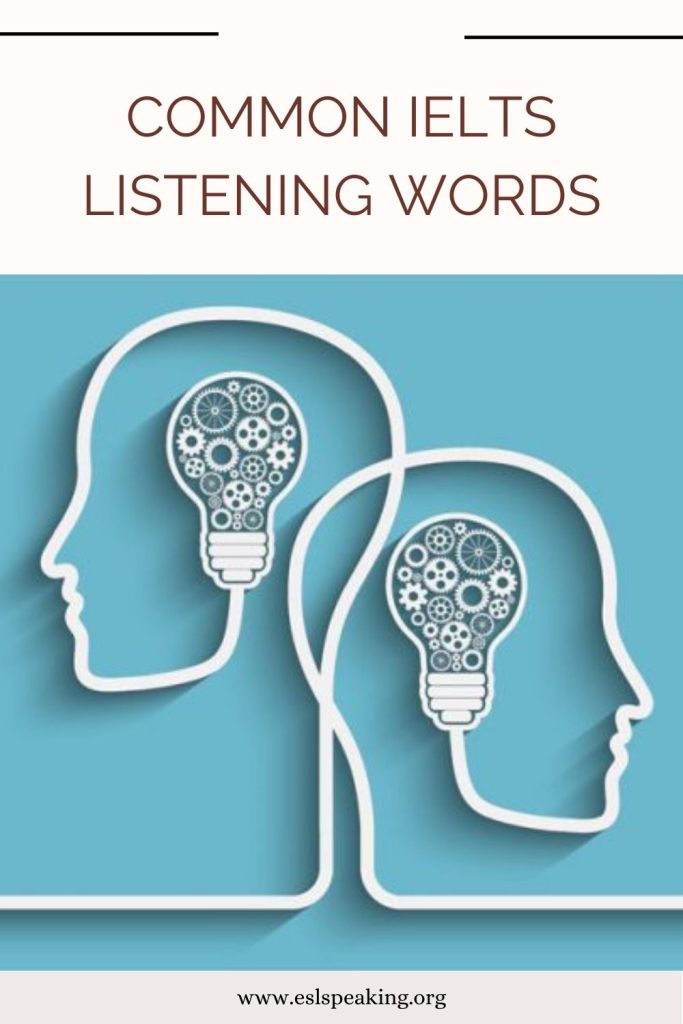
Common IELTS listening words
Here are some of the most common listening words for the IELTS exam:
- Library (shelf, stacks, return, overdue, index, catalogue, etc.)
- Student (freshman, sophomore, junior, senior, bachelor, masters, etc.)
- Teacher (lecturer, professor, associate, teaching assistant/TA, dean, etc.)
- Courses (syllabus, register, add/drop the course, curriculum, etc.)
- Reading and Books (book review, publication, magazine, periodical, etc.)
- Shopping (chain store, department store, grocery shopping, out of stock, on hold, etc.)
- Living in a house (vacuum cleaner, chores, budget, clean up, etc.)
- Daily life (interaction, take a message, leave a message, etc.)
- Business (job hunting, resume, meeting, job interview, strategy, etc.)
- Eating out (menu, check, reservation, ready to order, split the bill, etc.)
- Well-being (epidemic, virus, doctor, hospital, mental health, etc.)
- Exercise (overweight, put on weight, lose weight, cardio, strength training, etc.)
Learn IELTS Vocabulary
- Amazon Kindle Edition
- Bolen, Jackie (Author)
- English (Publication Language)
- 175 Pages - 07/05/2021 (Publication Date)
One of the keys to scoring more highly on the IELTS exam is to know a lot of vocabulary, including expressions, collocations, idioms and more. If you need to improve this, then you’ll want to check out this book on Amazon: IELTS Speaking Vocabulary Builder.
You’ll learn thousands of expressions, slang, collocations and pretty much everything you need to ace IELTS vocab! Pick up your copy of the book today and get ready for a better score in the future:
FAQs
There are a number of common questions that people have about the IELTS listening exam. Here are the answers to some of the most popular ones.
How can I get an 8.5 in IELTS listening?
In order to get an 8.5 in IELTS listening, you’ll need to get 89% of the questions correct.
How can I practice IELTS listening?
There are a number of ways that you can practice IELTS listening:
- Work on general listening skills with podcasts, TV shows, etc.
- Do lots of practice tests.
- Get familiar with the test format.
- Check your answers, especially for spelling and word count.
- Remember that you only get to listen once, so practice for this.
- It’s best to practice a little bit every day instead of for hours and hours one day.
Why is IELTS listening so hard?
IELTS listening is so hard because there’s only 1 test for all levels. For lower than a band 8, you’ll likely get many questions wrong. Also, the recording is only played once.
Which kind of question is most difficult for IELTS listening?
Most people consider the multiple-choice questions to be the most difficult part of the IELTS listening exam. This is because many of the answers are very similar. It’s very important to read the questions first during the time given.
Can I pause IELTS listening?
No, you cannot pause an IELTS listening recording. It will only play once, the entire way through. In addition, there’s a strict time limit for answering the questions. In short, you have no control over how fast it’s playing or when it starts and stops.

Listening tips in IELTS
IELTS Resources
Here are some tips, tricks and other resources to check out:
Listening in IELTS: Join the Conversation
Do you have any tips or tricks for this listening exam? Leave a comment below and let us know what you think. We’d love to hear from you.
Last update on 2024-04-25 / Affiliate links / Images from Amazon Product Advertising API
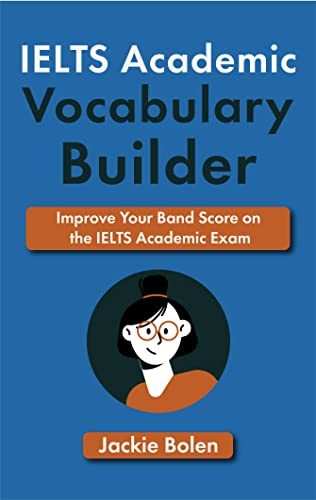
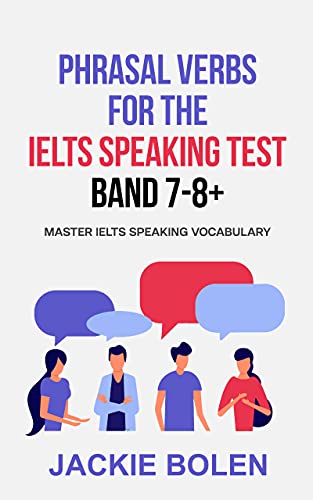


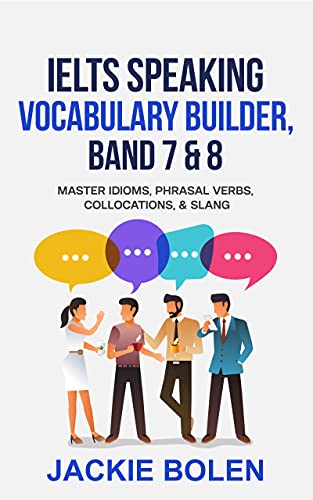




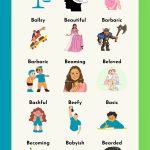

Leave a Reply